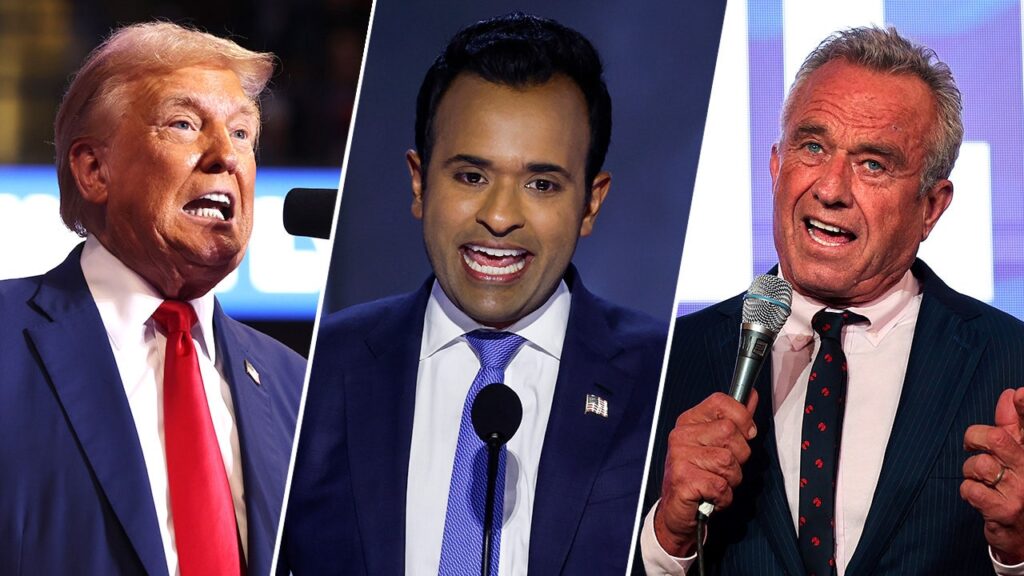
“Deals work best when each side gets something it wants from the other.”
That’s a quote from President Trump’s 1987 book “The Art of the Deal,” and it’s excellent guidance as he seeks to make progress on his campaign promises, including his signature pledge of fixing America’s immigration system.
Since taking office, Trump has issued immigration executive orders focused on “enhanced vetting” of visa applicants, ending birthright citizenship, sending National Guard to the border, changing the asylum process, and curbing the refugee program, to name a few.
These may be effective in the short term at changing how laws are enforced, but executive actions do not change underlying laws. That requires Congress — and working with Democrats.
There is good news and bad news for Trump on that front. The good news is that multiple Democrats have openly expressed a willingness to work with him on areas of shared concern, immigration included. The bad news is that his window to work with these Democrats may be closing as Republican leadership ices them out of congressional negotiations.
If Trump cares about permanent, not just performative, changes on immigration, he should pick up the phone and talk to these Democrats. He may be surprised by what he hears.
Take Rep. Tom Suozzi (D-N.Y.), who wrote a January op-ed in The New York Times calling on Democrats to ditch their resistance mindset. “Only by working together to find compromise on parts of the president-elect’s agenda can we make progress for Americans who are clearly demanding change in the economy, immigration, crime and other top issues,” he wrote.
Another major Democratic advocate for commonsense immigration policy is Rep. Vicente Gonzalez (D-Texas), who represents a border district and voted for the recent Laken Riley Act (the sole immigration bill in Trump’s first month). He has called consistently for stronger enforcement at the border.
Then there is Rep. Marie Gluesenkamp Perez (D-Wash.), a proud Blue Dog Democrat who has consistently criticized her party for putting national political objectives over issues that matter to constituents. “I think 90 percent of Americans agree about 90 percent of the issues,” she said. She’s expressed openness to working with Trump on everything from fentanyl and the border to inflation and the budget.
Her Blue Dog colleague, Rep. Jared Golden (D-Maine), is also open to cooperating and has voiced support for Trump’s Remain in Mexico policy. Golden is the same Democrat who criticized his party during the election for its constant claims that Trump would bring the end of Democracy.
Others like Reps. Josh Gottheimer (D-N.J.) and Don Davis (D-N.C.) are in a similar boat, consistently showing up to the negotiating room in good faith but rarely getting a seat at the table with Republicans.
These Democrats don’t agree with Trump on every or even most issues, and they stand up to him often, but their willingness to work together on areas of overlap puts them squarely in line with most Americans. More than three in four voters say they want congressional Democrats to “find common ground” with the Trump administration.
That’s hard to do when Trump seems to prefer to go it alone. He has signed 68 executive actions and counting to impose change unilaterally on a host of issues. The courts aren’t the only problem with this approach. He should know by now that executive orders are ephemeral; they can and will be reversed by a future president. Legislative action, meanwhile, is durable.
The Democrats willing to work with Trump are the very ones who can help him achieve a legacy of lasting reform. If he ignores them now — if he waits until he has no other choice but to ask for their support — he may find that the window of opportunity has passed.
When he’s ready to put his dealmaking to the test, Trump should start with immigration, but similar opportunities abound on permitting, energy, inflation and even the Department of Government Efficiency’s government reform efforts — all areas where bipartisan cooperation is not only possible but necessary for enduring change.
Trump won’t get everything he wants from these Democrats on any given issue, but that’s just how negotiations go — and Trump understands that well. He wrote the book on it.
Dan Webb is a No Labels governing board member and former U.S. attorney from Chicago.


